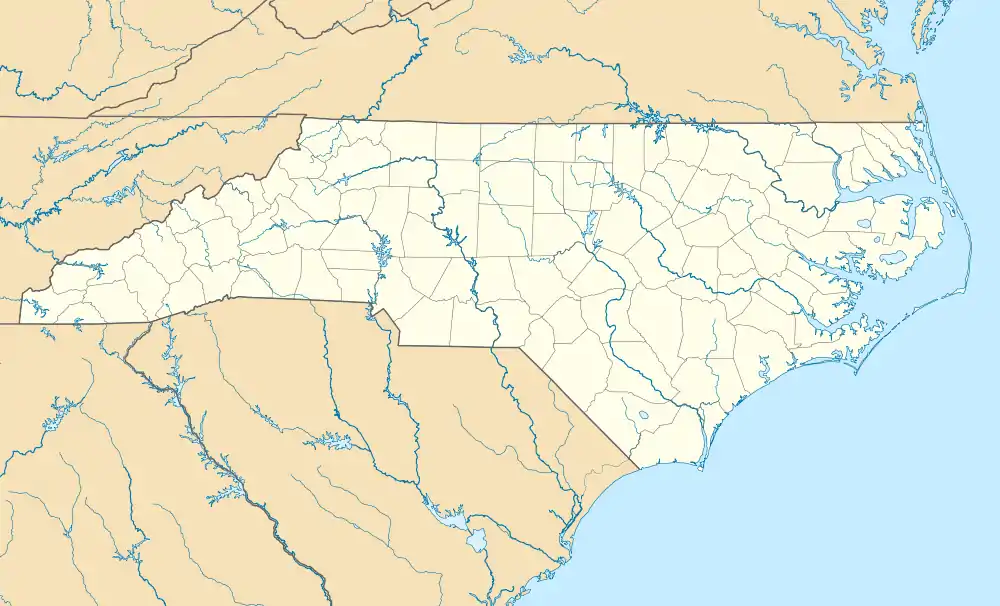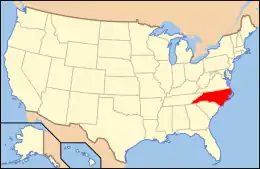Grove Park Historic District
Grove Park Historic District is a national historic district located at Asheville, Buncombe County, North Carolina. The district encompasses 290 contributing buildings and 1 contributing site in a predominantly residential section Asheville. The planned suburban community was originally platted and developed in 1908-1913 and 1914. It includes representative examples of Colonial Revival, Tudor Revival, and Bungalow style dwellings. The community was laid out by noted landscape architect Chauncey Beadle. The Kimberly Amendment to Grove Park was an expansion made to the original Grove Park development in 1923. It includes the former Asheville Country Club, now the Grove Park Inn Country Club.[2][3]
Grove Park Historic District | |
 Dr. Louie Mueller Griffith House (1926) | |
  | |
| Location | Roughly bounded by Evelyn Pl., Macon Ave., Howland Rd., Woodland Rd., Canterbury Ln., Charlotte St., and Murdock Ave.; also roughly Kimberly Ave. from Maywood St. to north of Evelyn Pl., including Grove Park Inn Country Club, Asheville, North Carolina |
|---|---|
| Coordinates | 35°36′38″N 82°32′45″W |
| Area | 232 acres (94 ha) |
| Built | 1908-1913, 1914 |
| Architect | Grove, Edwin Wiley; Beadle, Chauncey |
| Architectural style | Colonial Revival, Bungalow/craftsman, Tudor Revival |
| NRHP reference No. | 89000247, 90001918 (Boundary Increase)[1] |
| Added to NRHP | April 13, 1989, December 18, 1990 (Boundary Increase) |
It was listed on the National Register of Historic Places in 1989, with a boundary increase in 1990.[1]
References
- "National Register Information System". National Register of Historic Places. National Park Service. July 9, 2010.
- Sybil A. Bowers and Carolyn Humphries (August 1988). "Grove Park Historic District" (pdf). National Register of Historic Places - Nomination and Inventory. North Carolina State Historic Preservation Office. Retrieved 2014-08-01.
- Carolyn Humphries and Mary Hooper (n.d.). "Kimberly Amendment to Grove Park Historic District" (pdf). National Register of Historic Places - Nomination and Inventory. North Carolina State Historic Preservation Office. Retrieved 2014-08-01.

